BANKING
Crappy Credit? 30 Effective Ways to Improve Your Score
Published
7 months agoon

Shutterstock
Improving your credit score is a vital step towards achieving financial stability and opening doors to better lending opportunities. If you find yourself with bad credit, it can feel overwhelming, but there are practical steps you can take to improve your situation. From monitoring your credit report for errors to establishing a solid payment history, each action you take can contribute to a healthier credit profile. This guide outlines 30 effective strategies to help you boost your credit score and regain control over your financial future. By following these steps, you can work towards a brighter financial outlook and enjoy the benefits of a higher credit score.
Check Your Credit Report

Shutterstock
Obtain your credit report from the three major credit bureaus (Equifax, Experian, and TransUnion). Reviewing it for errors and inaccuracies that could be negatively affecting your score is crucial. Any inaccuracies on your report can unfairly lower your credit score, so it’s important to address them promptly. Regularly checking your credit report can help you stay informed about your credit status and catch potential issues early.
Dispute Errors

Shutterstock
If you find any errors on your credit report, dispute them with the credit bureau. Provide documentation to support your claim and request that incorrect information be removed or corrected. This process can help ensure that your credit report accurately reflects your financial behavior. Correcting errors on your report can significantly boost your credit score.
Pay Your Bills on Time
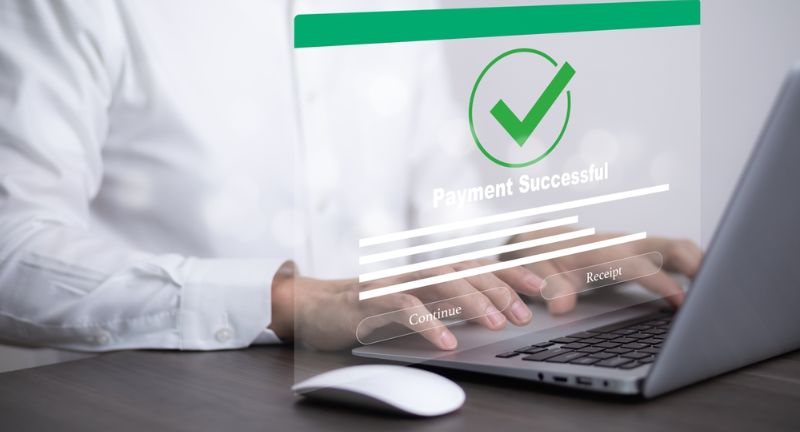
Shutterstock
Payment history is a significant factor in your credit score. Making sure to pay all your bills on time, including credit card payments, loans, utilities, and even rent, is essential. Late payments can negatively impact your credit score and remain on your credit report for years. Consistently paying your bills on time demonstrates financial responsibility and can improve your credit score over time.
Reduce Credit Card Balances

Shutterstock
Lowering your credit card balances can have a positive impact on your credit score. Aim to keep your credit utilization ratio below 30%. High balances can negatively affect your credit score, so paying down your debt can help. Reducing your credit card balances shows lenders that you are not over-relying on credit.
Create a Budget

Shutterstock
Develop a budget to manage your expenses and ensure you have enough money to cover your bills. This can help prevent missed or late payments. A budget can also help you identify areas where you can cut back and save money. You can improve your financial health and credit score by sticking to a budget.
Set Up Payment Reminders
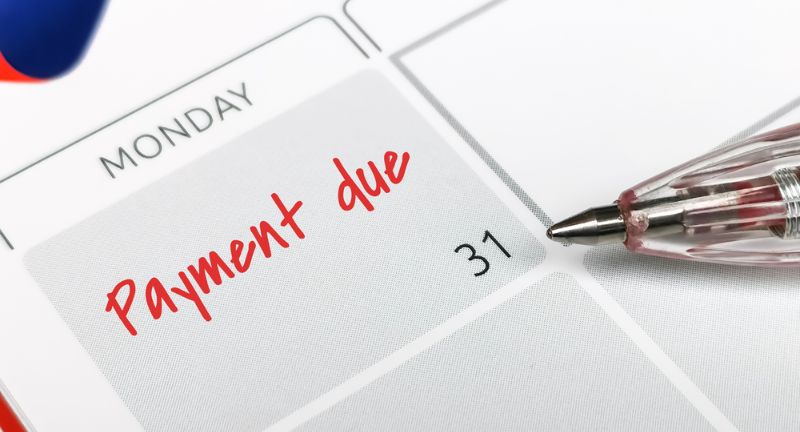
Shutterstock
Use payment reminders or set up automatic payments to ensure you never miss a due date. Many banks and financial apps offer features that can help you remember to pay your bills on time. Missing payments can negatively impact your credit score, so staying on top of your due dates is important. Payment reminders can help you maintain a positive payment history.
Pay More Than the Minimum

Shutterstock
Whenever possible, pay more than the minimum amount due on your credit card bills. This can help you reduce your balances faster and pay less interest over time. Paying more than the minimum shows lenders that you are serious about paying off your debt. Reducing your debt can have a positive impact on your credit score.
Consolidate Debt

Shutterstock
Consider consolidating your debt with a personal loan or a balance transfer credit card. This can simplify your payments and potentially lower your interest rates. Debt consolidation can make it easier to manage your finances and pay off your debt faster. Lower interest rates mean more of your payments go towards reducing your principal balance, which can help improve your credit score.
Avoid Closing Old Accounts

Shutterstock
Keep old credit card accounts open, even if you don’t use them regularly. The length of your credit history affects your credit score, so older accounts can be beneficial. Closing old accounts can reduce your available credit and increase your credit utilization ratio. Maintaining old accounts shows a longer credit history, which can positively impact your score.
Limit New Credit Applications

Shutterstock
Each new credit application can result in a hard inquiry on your credit report, which can temporarily lower your score. Limit new applications to only those you truly need. Multiple hard inquiries can signal to lenders that you are a higher risk. Fewer credit applications mean fewer hard inquiries, which can help improve your credit score.
Become an Authorized User

Shutterstock
Ask a family member or friend with good credit to add you as an authorized user on their credit card account. Their positive payment history can help improve your credit score. Being an authorized user can help you build credit without having to apply for a new credit card yourself. It’s a way to piggyback on someone else’s good credit habits.
Negotiate with Creditors

Shutterstock
If you’re struggling to make payments, contact your creditors to negotiate more favorable terms or payment plans. Many creditors are willing to work with you to avoid defaults. Negotiating can lead to lower interest rates or extended payment periods. This can make your debt more manageable and help improve your credit score over time.
Seek Professional Help

Shutterstock
Consider working with a credit counseling agency to get advice and assistance in managing your debt and improving your credit score. Credit counselors can help you create a budget and develop a debt management plan. They can also negotiate with creditors on your behalf. Professional guidance can provide you with the tools and knowledge you need to improve your financial situation.
Use a Secured Credit Card

Shutterstock
If you have difficulty getting approved for a traditional credit card, consider using a secured credit card. These require a security deposit but can help you build or rebuild credit. Using a secured card responsibly by making on-time payments and keeping balances low can improve your credit score. Over time, this can lead to opportunities for better credit cards and loans.
Keep Credit Utilization Low
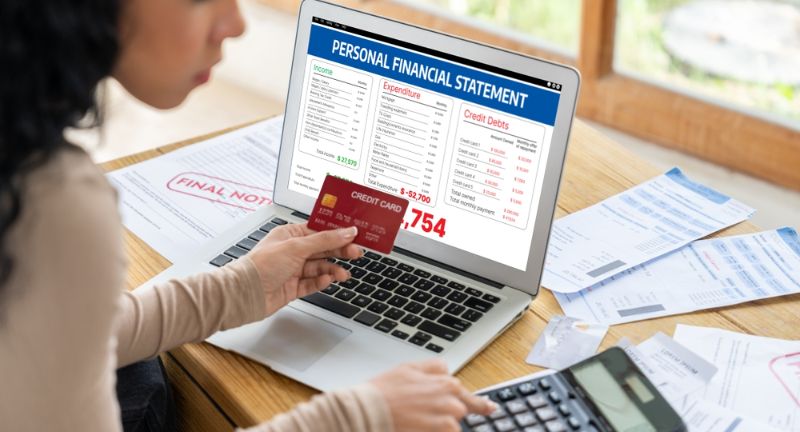
Shutterstock
Try to use only a small portion of your available credit. High credit utilization can negatively impact your credit score. Aim to keep your credit utilization ratio below 30% to show lenders that you manage credit responsibly. Keeping balances low demonstrates that you are not overly dependent on credit, which is favorable for your credit score.
Monitor Your Credit Regularly

Shutterstock
Regularly check your credit score and report to stay informed about your credit status. Monitoring your credit can help you catch any potential issues early. Being proactive about your credit can help you maintain or improve your score over time. There are many free and paid services available to help you monitor your credit regularly.
Diversify Your Credit Mix
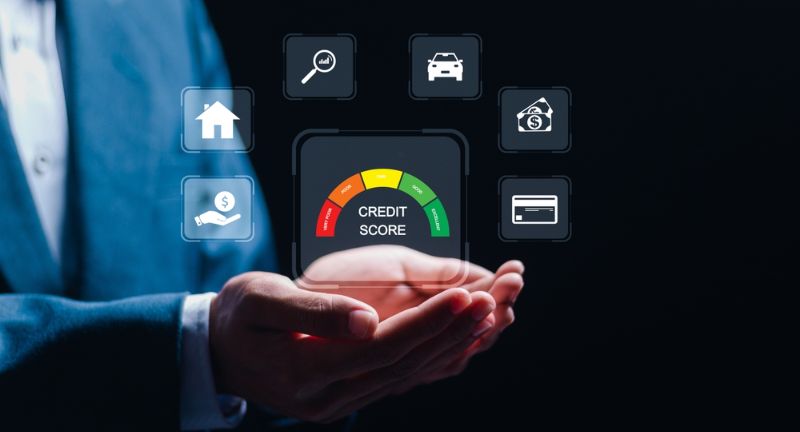
Shutterstock
Having a mix of different types of credit accounts, such as credit cards, installment loans, and mortgages, can positively impact your credit score. Lenders like to see that you can manage various types of credit responsibly. A diverse credit mix shows that you have experience handling different financial products. This can lead to a higher credit score and better lending opportunities.
Avoid Payday Loans

Shutterstock
Payday loans often come with high-interest rates and can lead to a cycle of debt. Avoid them if possible. Instead, explore other borrowing options that have more favorable terms and lower interest rates. Staying away from payday loans can help you avoid financial pitfalls that can negatively impact your credit score.
Use Credit Responsibly

Shutterstock
Only charge what you can afford to pay off in full each month to avoid accumulating debt and interest charges. Responsible credit use shows lenders that you manage your finances well. Paying off your balance each month can help you avoid interest charges and keep your credit utilization low. This can positively impact your credit score over time.
Increase Credit Limits

Shutterstock
Request a credit limit increase on your credit cards. This can lower your credit utilization ratio, provided you don’t increase your spending. A lower credit utilization ratio can positively impact your credit score. Be sure to use the increased credit limit responsibly to maintain a good credit profile.
Set Financial Goals

Shutterstock
Establish clear financial goals, such as paying off a certain amount of debt within a specific timeframe. This can help keep you motivated and focused. Setting goals can provide you with a roadmap to improve your financial situation. Achieving these goals can positively impact your credit score and overall financial health.
Avoid Co-Signing for Others

Shutterstock
Co-signing a loan or credit card for someone else can negatively impact your credit if they miss payments or default. You are equally responsible for the debt, and any negative actions will reflect on your credit report. Avoiding co-signing can help protect your credit score. Only co-sign if you are willing and able to take on the financial responsibility.
Pay Off High-Interest Debt First
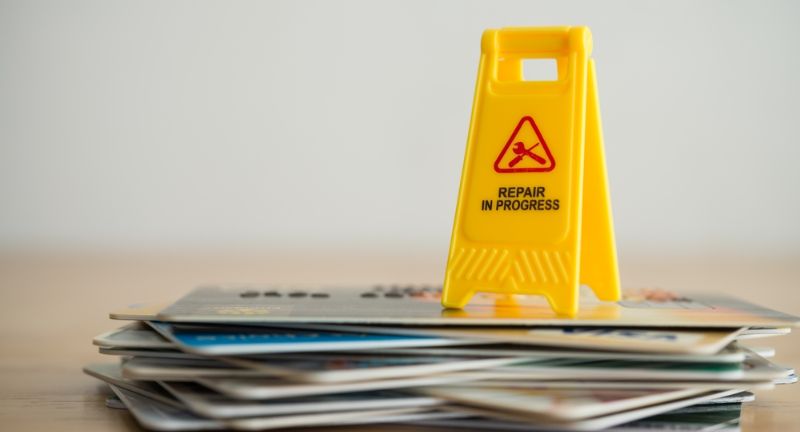
Shutterstock
Focus on paying off high-interest debt first to reduce the amount of interest you pay over time. This strategy can help you save money and pay down your debt faster. High-interest debt can be a significant financial burden, so prioritizing it can lead to improved financial health. Reducing high-interest debt can positively impact your credit score.
Consider a Debt Management Plan

Shutterstock
A debt management plan (DMP) can help you consolidate your debts into a single monthly payment and may offer lower interest rates. Working with a credit counseling agency can help you develop a DMP tailored to your financial situation. A DMP can make your debt more manageable and improve your credit score over time. It’s a structured way to pay off debt and regain control of your finances.
Educate Yourself on Credit

Shutterstock
Take the time to learn about how credit works and what factors impact your credit score. The more informed you are, the better you can manage your credit. Understanding credit can help you make smarter financial decisions. There are many resources available to help you learn about credit, including books, websites, and financial courses.
Keep Your Financial Information Secure

Shutterstock
Protect your personal and financial information to avoid identity theft, which can damage your credit score. Use strong passwords, monitor your accounts for suspicious activity, and be cautious with your information. Identity theft can have long-lasting effects on your credit, so it’s important to be vigilant. Keeping your information secure can help protect your credit score.
Make Use of Financial Apps

Shutterstock
Utilize financial apps that can help you track your spending, manage your budget, and monitor your credit score. Many apps offer features that make managing your finances easier and more efficient. These tools can help you stay organized and informed about your financial situation. Regular use of financial apps can help you maintain good credit habits and improve your credit score.
Avoid Overdrafts
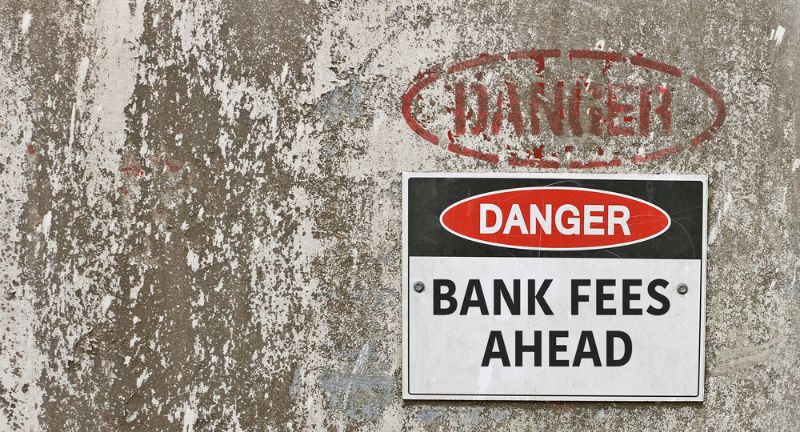
Shutterstock
Overdrafts on your checking account can lead to fees and negatively impact your financial health. Keep track of your account balances to avoid them. Setting up overdraft protection can help you prevent accidental overdrafts. Avoiding overdrafts can help you maintain better financial stability and protect your credit score.
Seek Legal Advice for Severe Debt Issues

Shutterstock
If you’re facing severe debt issues, consider seeking legal advice to explore options like bankruptcy or other debt relief solutions. Legal professionals can help you understand your rights and options. While bankruptcy should be a last resort, it can provide a fresh start for those struggling with unmanageable debt. Legal advice can help you make informed decisions about your financial future.
Stay Patient and Persistent

Shutterstock
Improving your credit score takes time and consistent effort. Stay patient, follow your plan, and persistently work towards better credit health. Small, consistent actions can lead to significant improvements over time. Remember that building good credit is a long-term process, and persistence pays off.
Conclusion

Shutterstock
Improving your credit score is a journey that requires patience, discipline, and consistent effort. By implementing the strategies outlined in this guide, you can gradually rebuild your credit and secure a stronger financial future. Remember, small steps can lead to significant improvements over time. Stay committed to your financial goals, and don’t hesitate to seek professional advice when needed. With determination and the right approach, you’ll be well on your way to a higher credit score and greater financial freedom.
ADVERTISEMENT - CONTINUE BELOW
Related Topics:

About Financially+
Financially+ provides our community with the latest personal and business finance news from around the world. We publish money saving and earning tips to help you make smartier investing decisions. We're inspired by exploring and providing new ways for our audience to achieve financial freedom. We can't wait to share all of our exciting deals, guides and reviews to help you live your financial life to the fullest.
ADVERTISEMENT
ADVERTISEMENT


ECONOMY5 months ago
How to Stay Broke: 35 Foolproof Ways to Waste Your Money
Many people struggle with their finances, often without realizing where their hard-earned money is going. Small, seemingly harmless purchases can...


ECONOMY6 months ago
20 Grocery Store Products That Are Draining Your Wallet
When it comes to grocery shopping, it’s easy to overspend on items that seem convenient but aren’t worth the price....


ECONOMY7 months ago
Things You Need To Stop Wasting Your Money On
Managing your finances means finding and identifying moments where you might be overspending and fixing it. Many everyday purchases can...



